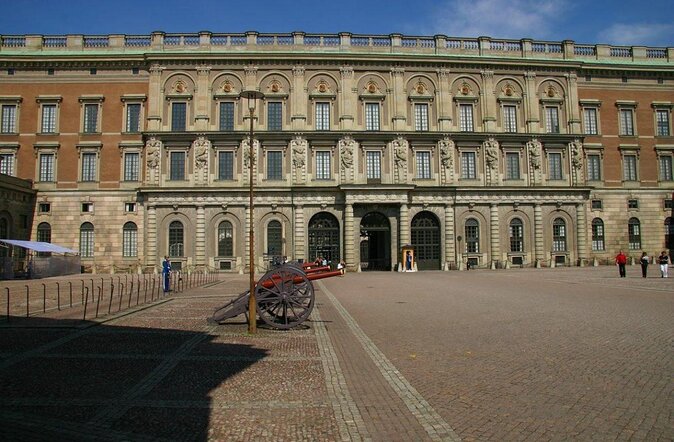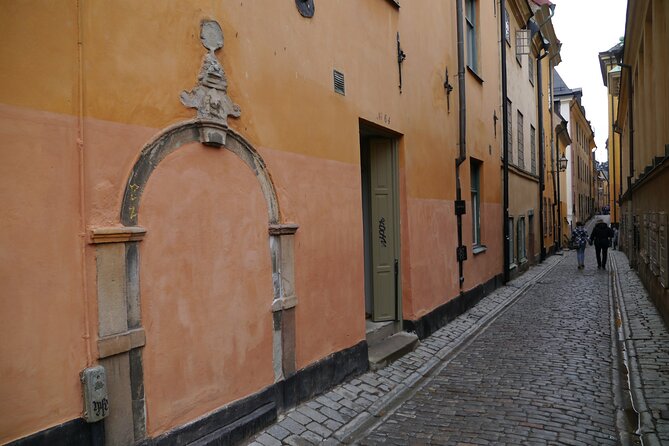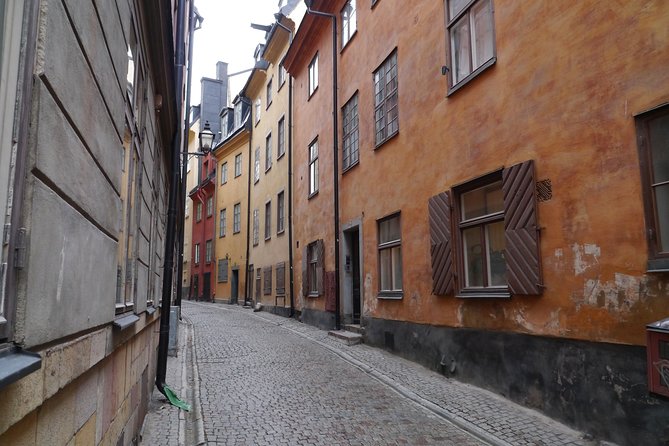The dynamic relationship between Germany and Sweden has long served as a model for international cooperation, fostering collaboration across various sectors. Public leaders from both nations have spearheaded initiatives that strengthen cultural, economic, and political ties, enhancing mutual understanding and addressing global challenges. Through educational and scientific partnerships, this leadership has also encouraged innovation, positioning the two countries as prominent players on the world stage. As the world continues to evolve, the commitment to shared values and collaborative efforts demonstrated by German-Swedish connections will undoubtedly shape the development of future leaders and the prosperity of both nations.
Key Points

- Prominent German and Swedish public figures have championed collaboration, leveraging cultural, economic, and political ties to drive progress on shared priorities.
- High-level political exchanges and joint EU initiatives demonstrate the nations’ commitment to collective leadership on global challenges like climate change and security.
- Extensive academic and scientific exchanges facilitate the exchange of ideas and foster innovation, reinforcing the nations’ reputations as knowledge hubs.
- Vibrant cultural festivals and artistic collaborations promote mutual understanding and people-to-people connections, strengthening the foundations of the German-Swedish partnership.
- Robust economic partnerships, including in emerging sectors like renewable energy and digital transformation, underscore the nations’ interdependence and collaborative approach to economic growth.
Historical Ties

Exploring the historical ties between Germany and Sweden reveals a rich tapestry of cultural exchange, political cooperation, and shared intellectual pursuits.
The two nations have long maintained strong diplomatic and economic relations, with prominent German figures like Immanuel Kant and Friedrich Nietzsche inspiring Swedish philosophers and scientists.
During the 17th century, Sweden emerged as a major European power, and its alliance with Germany shaped the course of the Thirty Years’ War.
More recently, the countries have collaborated closely within the European Union, aligning on issues such as climate change and humanitarian aid.
This enduring partnership reflects the deep-rooted historical connections that continue to shape the public discourse between Germany and Sweden.
You can also read our reviews of more tours and experiences in Stockholm.
Cultural Exchanges

The cultural exchanges between Germany and Sweden have been extensive and multifaceted. The two nations have a long history of artistic, academic, and diplomatic collaboration.
Germany has influenced Swedish design, music, and literature, while Sweden has contributed to German innovations in areas like sustainability and social welfare.
Academic exchanges, joint research projects, and student mobility programs have further strengthened the intellectual ties between the countries.
Cultural festivals, art exhibitions, and theatrical productions have fostered a vibrant cross-pollination of ideas and artistic expressions.
These multifaceted exchanges have enriched the cultural landscapes of both nations and serve as a testament to their enduring partnership.
Economic Partnerships
Germany and Sweden have established robust economic partnerships over the years, with substantial trade, investment, and collaborative initiatives.
The two countries are major trading partners, with Germany being Sweden’s largest export market and Sweden ranking among Germany’s top trading partners.
Significant German investments in Sweden span various sectors, including automotive, manufacturing, and renewable energy.
Likewise, Swedish multinationals have a strong presence in Germany.
The countries actively cooperate in research and development, fostering innovation in areas like green technology and digital transformation.
Economic ties are further strengthened by joint policies, shared expertise, and complementary strengths, positioning Germany and Sweden as strategic economic allies within the European Union.
Political Alliances

Beyond the robust economic partnerships, Germany and Sweden have also forged strong political alliances over the years.
The two nations have closely collaborated on key European Union initiatives, aligning their positions on issues like climate change, defense, and social welfare. This cooperation extends to the international stage, with Germany and Sweden working together to promote stability and democracy worldwide.
The shared values of liberal democracy and a commitment to multilateralism underpin this political alliance, making it a vital component of the broader German-Swedish relationship.
As global challenges continue to evolve, the political cooperation between these two influential European powers remains an essential pillar of their longstanding partnership.
Diplomatic Relations
.jpg)
Longstanding diplomatic ties between Germany and Sweden have fostered productive cooperation in international affairs. This partnership has manifested in several key ways:
-
The two countries regularly coordinate positions on major global issues within multilateral organizations like the European Union and the United Nations.
-
High-level official visits and dialogues occur frequently, allowing leaders to address shared concerns and advance mutual interests.
-
Economic and cultural exchanges have deepened, strengthening people-to-people connections and boosting economic prosperity on both sides.
This vibrant diplomatic relationship has proven invaluable in navigating complex regional and global challenges, underscoring the enduring importance of Germany-Sweden cooperation on the world stage.
Educational Collaborations
.jpg)
Along With their diplomatic ties, Germany and Sweden have fostered extensive educational collaborations that have further strengthened their longstanding partnership.
Students and scholars from both countries regularly participate in exchange programs, joint research initiatives, and shared academic conferences.
Prestigious universities in Germany and Sweden maintain robust faculty and student exchanges, enabling intellectual cross-pollination and the advancement of knowledge in various fields.
These educational collaborations not only promote cultural understanding but also contribute to the development of future leaders and innovators who will shape the future of the German-Swedish relationship.
The depth and breadth of these educational ties underscore the commitment to strengthening ties through the power of knowledge and learning.
Scientific Cooperation
.jpg)
Another key aspect of the German-Swedish partnership is their robust scientific cooperation. The two nations collaborate extensively in various scientific fields, including:
-
Research and development: Germany and Sweden jointly fund and participate in numerous research projects, leveraging their complementary strengths and expertise.
-
Academic exchanges: The countries facilitate student and faculty exchanges, enabling the cross-pollination of ideas and the shared advancement of knowledge.
-
Technology transfer: German and Swedish institutions work together to commercialize innovative technologies, fostering economic growth and technological competitiveness.
This scientific collaboration has yielded significant breakthroughs and strengthened the global standing of both countries in the realms of science and technology.
Frequently Asked Questions
.jpg)
What Is the Duration of the Private Tour?
The private tour has an approximate duration of 3 hours, as stated in the overview section of the information provided. The tour offers a comprehensive experience for the booked group at the specified meeting point in Stockholm, Sweden.
Is the Meeting Point and End Point the Same?
Yes, the meeting point and end point for the private tour are the same location – the Nobel Prize Museum in Stockholm, Sweden. The tour begins and concludes at the same designated meeting spot outside the museum.
Is Gratuity Included in the Tour Cost?
Yes, gratuity is included in the tour cost. According to the information provided, "Gratuities included" is listed under the "What’s Included" section, indicating that the tour price covers all necessary tips and gratuities.
Is the Tour Wheelchair Accessible?
According to the information provided, this tour is not wheelchair accessible. The overview states that "Accessibility: Not wheelchair accessible", indicating this private tour does not accommodate guests using wheelchairs or mobility devices.
What Is the Cancellation Policy for the Tour?
The cancellation policy for this tour is that a full refund is available up to 24 hours in advance. This provides flexibility for tour participants who need to change their plans.
Recap
Connections between German and Swedish leaders foster collaboration across cultural, economic, and political sectors. Joint initiatives and exchanges enhance mutual understanding, address global challenges, and encourage innovation through educational and scientific partnerships. A commitment to shared values and collaborative efforts supports the development of future leaders and the overall prosperity of both countries.
More Tour Reviews in Stockholm
Not for you? Here's more things to do in Stockholm we have recnetly reviewed
- 13 Best Canoe And Kayak Experiences In Stockholm
- 3 Best Dining Experiences In Stockholm
- 7 Best 2 Day Tours In Stockholm
- 2 Best Dinner Tours In Stockholm
- 10 Best 3 Day Tours In Stockholm
- 3 Best Shopping Tours In Stockholm
- 25 Best Canoe And Kayak Experiences In Stockholm
- 9 Best Christmas Experiences In Stockholm
- 25 Best Cruises And Boat Tours In Stockholm
- 8 Best Food Tours In Stockholm
- 6 Best Full-Day Tours In Stockholm
- 2 Best 4 Day Tours In Stockholm
